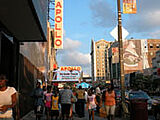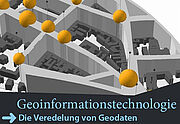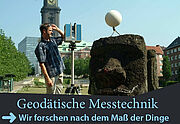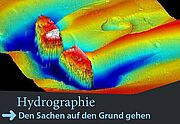The master programmes offer students, ideally after they have gained their first professional experience, the opportunity to acquire more in-depth knowledge of their chosen field of study, which enables them to work independently in their discipline. The master's degree at the HCU Hamburg can also, however, serve as preparation for a scientific career, as the students participate in research processes in their specialist disciplines as well as in integrated research fields of the overall university. Our aim is to offer a variety of master programmes, which exceeds the limits of the previously existing disciplines, and to thus enable students to open up new professional fields in an individual and targeted manner in the area of built urban and regional environments.
Master in Architecture
Master in Architectural Engineering
The Master in Architectural Engineering is designed as a consecutive, postgraduate course for graduates of the associated bachelor programme in civil engineering at the HCU Hamburg.
The aim of the course is to provide students with scientifically substantiated knowledge and skills in a research-related manner so that the graduates are capable of recognising the complexity of specialist problems and tasks, as part of a secondary degree with professional qualifications, and independently and autonomously solving said problems and tasks as well as bearing in mind and taking into consideration the subject-specific and social consequences and effects on the environment.
Master in Urban Planning
The Master in Urban Planning qualifies students for all levels of spatial planning, enabling them to work in a self-reliant manner. They are qualified to work independently and responsibly as urban planners on a scientific basis taking into account the design, technical, economical, ecological and design aspects.
Resource Efficiency in Architecture and Planning (REAP)
Resource Efficiency in Architecture and Planning (REAP) was the first interdisciplinary research group formed at the HafenCity University by members of different subject areas (Architecture, Civil Engineering, Urban Planning, Landscape Planning, Building Physics, Building Materials Technology, Building Construction, Acoustics, Technical Urban Infrastructure Systems, Environmental Planning and Planning Law). The REAP group specialises in addressing the current and future issues facing our towns and cities.
Master in Urban Design

The Master of Science in Urban Design is based on a broad understanding of contemporary urban relationships. In light of the questions and problems of a constructed environment undergoing dynamic change, new approaches should be developed, which create the prerequisites for sustainable and open-ended urban development.
mehr...
Master in Geodesy and Geoinformatics
The degree programme is focused on subject-specific consolidation and specialisation in selected branches of Geodesy and Geoinformatics and creates an excellent foundation for a qualified career in the promising areas of geo- and engineering sciences.
The Master in Geodesy and Geoinformatics focuses on three specific areas:
Fachübergreifende Studienangebote (FaS)
Die Fachübergreifenden Studienangebote (FaSt) liegen quer zu den einzelnen Studienprogrammen und sind ein wichtiger didaktischer Baustein im Ausbildungskonzept der HCU. Sie verorten sich in den Zwischenräumen der drei Kompetenzbereiche: Natur- und Ingenieurwissenschaften, Geistes- und Sozialwissenschaften sowie Entwurf und Gestaltung. Sie fördern mit ihren Veranstaltungen das Überschreiten der eigenen Fachgrenzen und ermöglichen einen Perspektivwechsel über die gewohnten Grenzen hinaus.
Die FaSt sind ein Alleinstellungsmerkmal der HCU und setzen sich zusammen aus dem Studium Generale-Programm [Q] STUDIES und den Linien Basics und Skills sowie den Interdisziplinären Projekten. Die HCU bietet in dem Querschnittprogramm rund 70 Veranstaltungen an, die wissenschaftliche, gesellschaftliche, kulturelle, ökonomische, historische und politische Fragestellungen in das Studium integrieren und darüber hinaus individuelle Fähigkeiten wie Kreativität, Kommunikations- und Handlungskompetenzen stärken.






